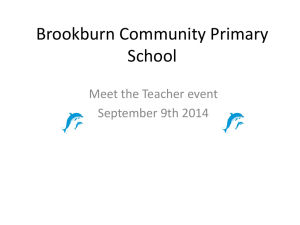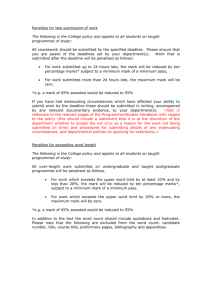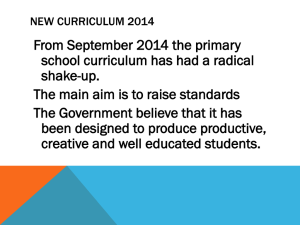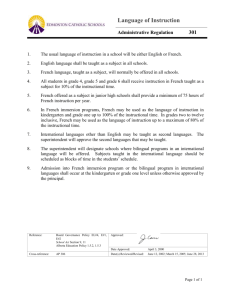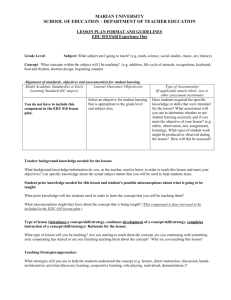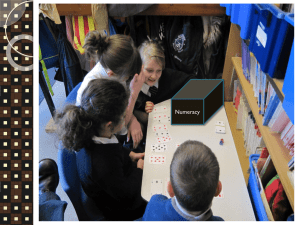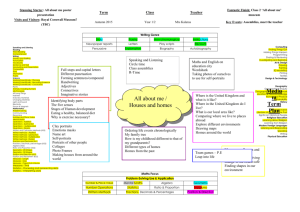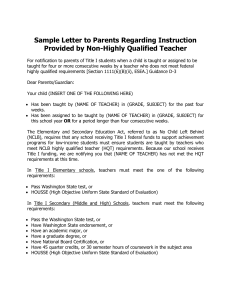Curriculum 2014 – a guide for parents
advertisement
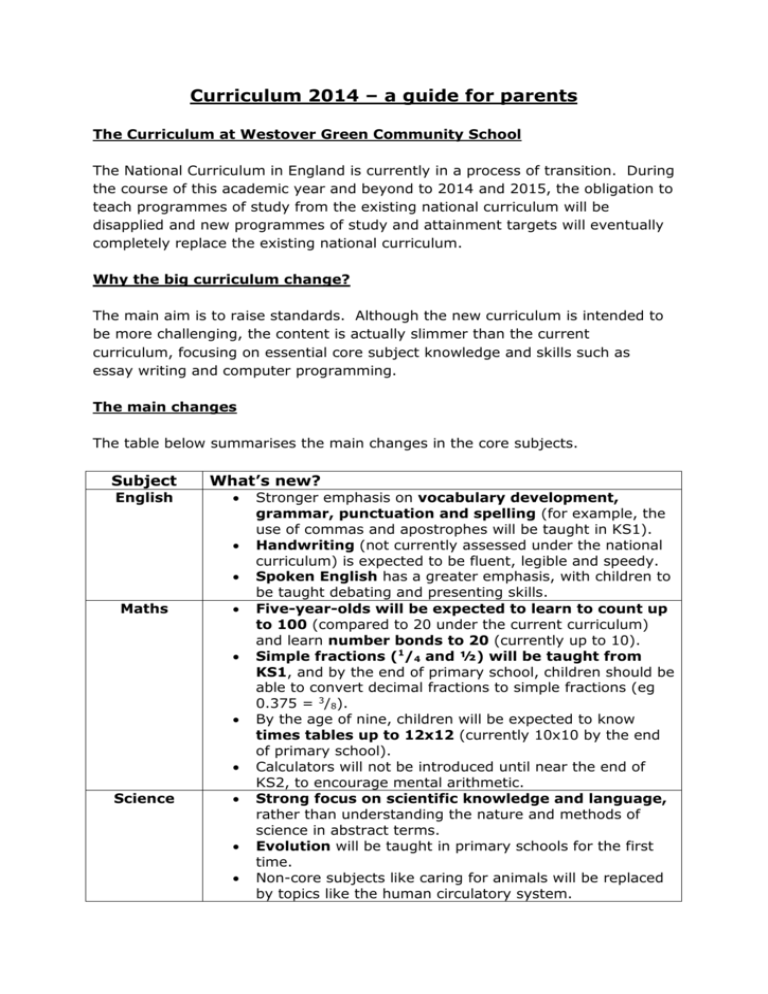
Curriculum 2014 – a guide for parents The Curriculum at Westover Green Community School The National Curriculum in England is currently in a process of transition. During the course of this academic year and beyond to 2014 and 2015, the obligation to teach programmes of study from the existing national curriculum will be disapplied and new programmes of study and attainment targets will eventually completely replace the existing national curriculum. Why the big curriculum change? The main aim is to raise standards. Although the new curriculum is intended to be more challenging, the content is actually slimmer than the current curriculum, focusing on essential core subject knowledge and skills such as essay writing and computer programming. The main changes The table below summarises the main changes in the core subjects. Subject English What’s new? Maths Science Stronger emphasis on vocabulary development, grammar, punctuation and spelling (for example, the use of commas and apostrophes will be taught in KS1). Handwriting (not currently assessed under the national curriculum) is expected to be fluent, legible and speedy. Spoken English has a greater emphasis, with children to be taught debating and presenting skills. Five-year-olds will be expected to learn to count up to 100 (compared to 20 under the current curriculum) and learn number bonds to 20 (currently up to 10). Simple fractions (1/4 and ½) will be taught from KS1, and by the end of primary school, children should be able to convert decimal fractions to simple fractions (eg 0.375 = 3/8). By the age of nine, children will be expected to know times tables up to 12x12 (currently 10x10 by the end of primary school). Calculators will not be introduced until near the end of KS2, to encourage mental arithmetic. Strong focus on scientific knowledge and language, rather than understanding the nature and methods of science in abstract terms. Evolution will be taught in primary schools for the first time. Non-core subjects like caring for animals will be replaced by topics like the human circulatory system. Design & Technology ICT Languages Design and Technology has become more important in the new curriculum, setting children on the path to becoming the designers and engineers of the future. More sophisticated use of design equipment such as electronics and robotics. In KS2, children will learn about how key events and individuals in design and technology have shaped the world. Computing replaces Information and Communication Technology (ICT), with a greater focus on programming rather than on operating programs. From age five, children will learn to write and test simple programs, and to organise, store and retrieve data. From seven, they will be taught to understand computer networks, including the internet. Internet safety – currently only taught from 11-16 – will be taught in primary schools. Currently not statutory, a modern foreign language or ancient language (Latin or Greek) will be mandatory in KS2. Children will be expected to master basic grammar and accurate pronunciation and to converse, present, read and write in the language. In order to prepare pupils for the more ambitious end of year expectations in English, Mathematics and Science, as set out in the new curriculum, teachers at Westover Green Community School will amend their delivery of the programmes of study detailed above as is appropriate. New programmes of study for English, Mathematics and Science will be adopted in full from September 2014, in line with guidance from the Department of Education.

